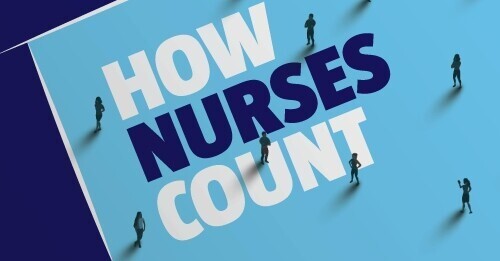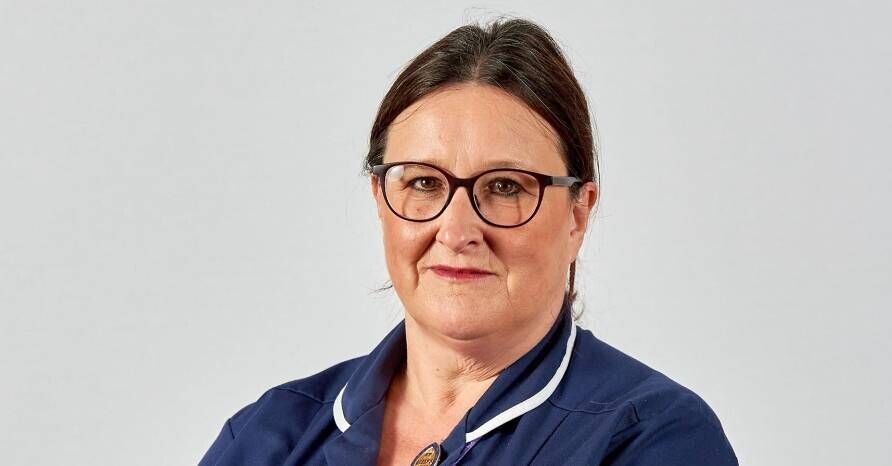Nurse leadership and training: ‘Let’s be proactive, not reactive’

NURSE LEADERS IN GENERAL PRACTICE
 Rebecca Corneck is a general practice nurse and prescriber at The Lewisham Care Partnership, and director of primary care learning and multi professional education lead at South East London Workforce Development Hub. Here she describes the intensity and rewards of advising patients on lifestyle changes and in investigating barriers to their use of medications. This article is part of the How Nurses Count series.
Rebecca Corneck is a general practice nurse and prescriber at The Lewisham Care Partnership, and director of primary care learning and multi professional education lead at South East London Workforce Development Hub. Here she describes the intensity and rewards of advising patients on lifestyle changes and in investigating barriers to their use of medications. This article is part of the How Nurses Count series.
What is your role as a nurse leader in primary care?
‘I’ve been practice nursing for 30 years next year, and I’ve gone from doing immunisations and smears, to now dealing with anything that walks in the door. Predominantly, I see multimorbidity and complicated diabetes patients.’
‘I work clinically two days a week, and I also educate nurses running a 6-day course in diabetes.
‘I’ve been teaching for the past 4 years and I’ve found my passion, leading on education delivery for south east London.’
Tell us about some key messages in the diabetes training you provide?
‘I teach so that they go away with tools in their box to make patient care better.
‘My big motto is ‘let’s be proactive, not reactive’, and for me, it’s about looking at the whole person.
‘So, you’re not just the asthma nurse, or you’re not just the COPD nurse. You should be able to do everything.
Related Article: Interview: New QICN chief on priorities, challenges and the 10-year plan
‘You can’t look at HbA1c, say, without looking at a patient’s kidney function. You can’t ignore their cholesterol, and you can’t ignore their blood pressure.
‘You should be able to discuss CKD [chronic kidney disease]. You should be able to explain about cholesterol and how that impacts diabetes.
‘And if you don’t sort their mental health out, or if you don’t sort their social health out, then you’re not going to get anywhere with resolving their physical health.
‘I’d like to see everybody, even the GPs, having these sorts of conversations.
‘I sometimes look at medication reviews, and a practice might look at hypertension on its own, or cholesterol on its own. But I think these should be pulled together, so the patient sees the link. It’s not just about high blood pressure, or about diabetes. They go together.’
And in general practice, what is your role in working with patients with long term conditions?
‘We’ve graded it in our practice, so you’ve got the easier cases, the more difficult, and then the really complex patients.
‘I designed an appointment system in lockdown to have red, green, amber. For diabetes for instance, green HbA1c would be 48 to 58 say, amber would be 58 to 65 or 75, and red would be above 75. So I see the ‘reds’: the ones that you need to unpick what’s gone wrong. All my clinic is red.
‘You’ve got to assess things. Why has it gone wrong? Are you taking your medication? What are you taking? Because often they’re not, or they are taking it the wrong way. That takes me probably the half an hour I have.
‘To unpick it all takes while.’
Why is this work important for patients?
‘I always say, you’re the detective. You’ve got to find out what’s going wrong, what’s going right, what they feel their blockers are; what their mood is like? If they’re on insulin, are they injecting into the same site every day? Are they storing it correctly?
‘I ask them to tell me their story. What’s been going on? Tell me what’s been happening? And usually there is a story. My dad died. I stopped taking my Metformin. I just got depressed. And then you can understand it.
‘I do a whole day on diet and lifestyle in my course. You’ve got to look at diet and lifestyle, as it is absolutely key for so many things that go wrong. They could be drinking pure orange juice thinking it’s healthy. It might be portion sizes, or they don’t understand what 30 grams of carb looks like.
‘It’s about educating them to thinking differently about what they’re eating, and empowering them with their own diet.’
Related Article: What we know so far about the government’s nurse ‘Graduate Guarantee’
Are nurses best placed in the team to educate about lifestyle changes?
‘I do have more time, though it takes a lot of energy. If you’re doing this full time, which I’m not, it is exhausting, and I think it’s too much to do five days a week.
‘You need the balance of a bit of something easier, like a smear or a child immunisation appointment — which aren’t easy either of course — but not as mentally draining.’
‘In the future, I also think we might want to train up the general practice assistants and healthcare assistants to be able to follow-up on dietary change. It’s about how we think about this slightly differently.’
Are the results of this work rewarding?
‘Patients may say they don’t want to go on a statin, which is common. So, we spend time explaining that if we don’t do something about their cholesterol as a diabetic, we’re making you at risk of heart attack or stroke.
‘Someone took six months to even go on Metformin, for example. But we kept going, and we got there in the end.
‘When people start using a Libre they might say ‘‘I noticed when I ate this, this happened’’ and they can start to work it out. I’ve seen people radically change their diets just from having that power and knowledge.
‘I’ve seen people, literally, in two weeks, half their HbA1c — because they’ve got it.
‘It is very rewarding when the patient does get it: a light bulb goes on, and they go away and make a change.
Related Article: We must celebrate what’s good about nursing in general practice
How Nurses Count!
This article is part of the How Nurses Count campaign, showcasing the impact of nurses in general practice.
 GPN and multi professional education lead Rebecca Corneck says:
GPN and multi professional education lead Rebecca Corneck says:
‘Yes, we count! We make a massive difference and have that strong relationship with the patient. Patients will tell you things and trust you; they will open up, and will work hard for you, which I think is very special. I’m not saying other people can’t do this too, but I think nurses have a different slant on it. In my view, practice nursing is one of the best jobs ever.’

See how our symptom tool can help you make better sense of patient presentations
Click here to search a symptom





![Menopause: identification and management [NG23]](https://s3-eu-west-2.amazonaws.com/images.nursinginpractice.com/wp-media-folder-nursing-in-practice/wp-content/uploads/2025/03/PULSE-NIP-UPLOAD-BAYER-NICE-MENOPAUSE-A5-HANDBOOK.jpg)
